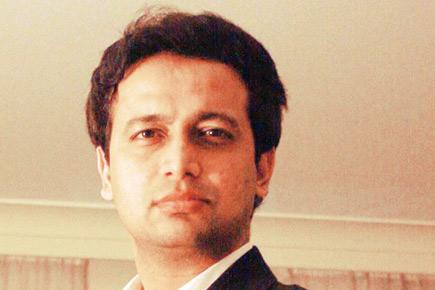An open letter to the film fraternity by Bollywood writer Abhijeet Deshpande about the unfair treatment that the industry metes out to scriptwriters

Abhijeet Deshpande
Earlier, I might have had a different opinion, but today I have the luxury of hindsight and the advantage of being privy to the 24 tumultuous hours the recent Pens Down Strike strike lasted. Support poured in from unexpected quarters. The biggest of producers individually swore allegiance to the writers’ cause.

Abhijeet Deshpande
Therefore to qualify this strike as a war and to colour its outcome as victory would be undermining the very ethos of this movement. The intent was never so militant; why should the outcome be? Besides ‘victory in war’ is an oxymoron with bloody citations. In about two weeks, when the writers’ rights will be legitimised who will benefit? The writers? Without doubt. But do the producers lose because now they will have to pay the writers more and share the royalty residuals, as well as assure the writers credit. In fact the opposite is true. It is the producer who stands to benefit more with the outcome.
Here’s why.
The last decade saw the revenue models of the film industry change owing to the proliferation of the TV satellite rights market. Films no longer had to hit it big at the box-office to be viable. Projects were being made on paper, rights sold and successes celebrated irrespective of the film’s box office destiny. The script and its importance could have never been relegated as much as it was during these times. In the last year and half everything has changed. The four major broadcasters throttled the satellite market. Why should we pay Rs 50 crore for a film was the question the film industry had no answer to.
The writing on the wall was clear. If you don’t perform at the box office, you will be made to bleed. Film studios unfortunately saw the satellite market crash as a recessionary symptom and started to cut costs across the board. Two departments they could never touch were the actors’ fee and advertising costs. The overall viability of the project definitely accommodated these two rocketing expenses. Now, here was a chance to correct a mistake of tradition and acknowledge the writers’ importance because the only guarantee of a sustained hit film is a good script — a script that transcends demographics, a script that connects.
But in reality, the writers, who were anyway paid peanuts, faced the grind. Now, what is rightfully his by law, which is the royalty, even that the producer wants to deny him and the excuse being cited is that times are bad. Why would the passionate film writer then be motivated to write original stories? Many turned to television where they happily wrote crap because at least they were paid regularly. Most of us spread ourselves thin over multiple numbers of projects and saw the writing quality wither. A few others, who couldn’t bear the frustration, became directors and thus the drain of good writers and good writing continues.
A few producers realised the benefits of the writers’ movement. Biggies like Vipul Amrutlal Shah and Ashutosh Gowariker have ostentatiously expressed their full support for the writers during the strike. And that is not without a reason. They are smart enough to know how their individual businesses and the industry, which they lead, stands to benefit when the writer is given his due, his credit protected, his dignity preserved. The lack of ambition amongst a few others is worrisome though.
It is time the entire industry acknowledged the pluralistic nature of the film business. We all need each other. The producer cannot work in isolation and think that it is the power of money that gives him colossal leverage over the rest. In fact financing might even be the most lethargic way to be a part of a highly specialised and creative business like films. Production of a film is a lot more than merely financing it. And, if that is the truth then why the arrogance of position? The legacy of myopia and entitlement, which we have inherited, needs to be shed and we have to look at the future.
Hollywood films are already coming in and beating us at relevance. Digital content is being streamed directly to the TV set and the movie watching experience has already shrunk to a mobile screen. In these transitional times what will sustain is good content.
The Minimum Basic Contract (MBC) conceptualised by Anjum Rajabali and Saket Chowdhary does not by any means juice the producer out. It creates a system where writers can write without the basics being contested. The negotiations with the producer bodies will begin in a day or two.
Legally, of course, the MBC will prevail. Writers’ dignity will be restored. However, in a civil society, for change to be sustainable, it has to be a rationale of the common mind, and not merely an enforcement of law.
Abhijeet Deshpande has written films like Mi Shivajiraje Bhosale Boltoy, Shaitan, Table No 21, Shootout at Wadala and the upcoming film, Wazir
 Subscribe today by clicking the link and stay updated with the latest news!" Click here!
Subscribe today by clicking the link and stay updated with the latest news!" Click here!










